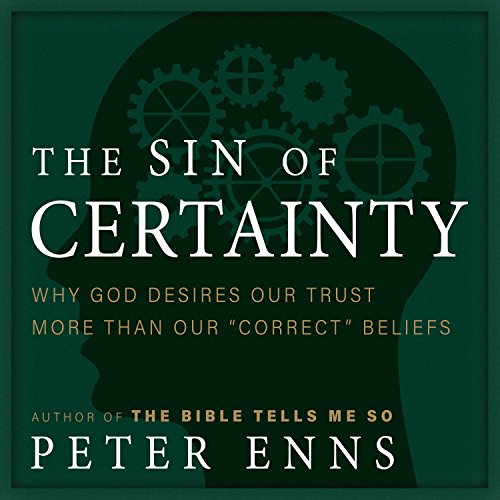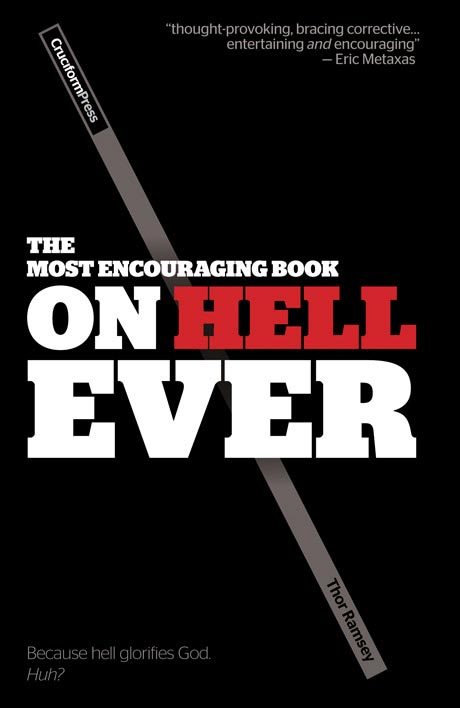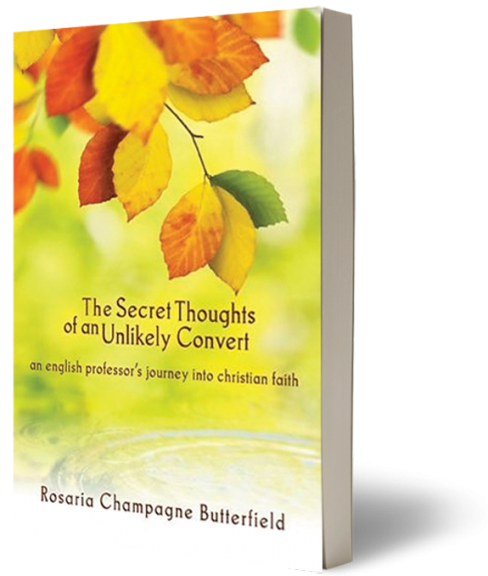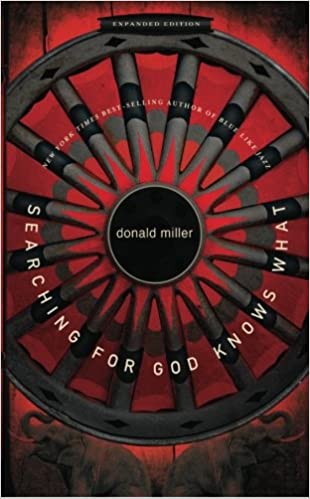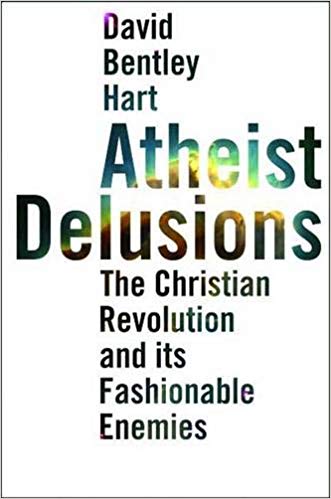
We remember what we want to remember
Every age necessarily reinterprets and rewrites the past in accord with its own interests, ideals, and illusions (33) The past is always to some extent a fiction of the present (129).
Hart is disgusted. The tale that modernity is wishing to call history has gotten entirely out of hand, most notably in its recollections of Christianity.
The story that modernity wants to remember
- Once upon a time, there was a late Roman Hellenistic culture that cherished the power of reason and pursued science and high philosophy. Then came Christianity, which valued only blind obedience and irrational dogma, and which maliciously extinguished the light of pagan wisdom. Then, thanks to Islam, thirteenth-century Christendom suddenly rediscovered reason and began to chafe against the bondage of witless fideism. And then, as if by magic, Copernicus discovered heliocentrism, and reason began its inexorable charge toward victory through the massed and hostile legions of faith.
- The emergence of the secular state rescued Western humanity from the rule of religious intolerance.
- Secularism is the exuberant adventure into the adulthood of the race so long delayed by priestcraft, superstition and intolerance. Secularism is the great revolution that liberated society and the individual alike from the crushing weight of tradition and doctrine.
What does Hart think of this story?
Utter bilge. Hart criticizes Hitchens, Dawkins, Dennett, Harris, Kirsch, Gibbon, MacMullen, and Freeman to name a few. To Christopher Hitchens subtitle on his bestseller “How religion poisons everything” He directs particular malice. What precisely is meant by everything? Hart wonders, then he lists an entire page of wonderful things that would not exist were it not for Christianity, things like the abolition movement, the golden rule and hospitals. He concludes with the comment “It borders upon willful imbecility to lament the rise of Christendom.” One example of the “selective memory” of modernity comes to us through Edward Gibbon’s majestical work The History of the Decline and Fall of the Roman Empire. In it, Gibbon argues that Pagan polytheism was more “tolerant” than Christianity because of the plethora of pagan deities to choose from. This “tolerance” is pure fiction. Pagans slaughtered with “extravagant violence” says Hart, Jews and Christians alike. Anyone who denied the god’s existence was in mortal danger. Adding to pagan “tolerance” was the reality of human sacrifices both on alters, and more prevalently in the coliseums. Pagan systems of belief cared nothing for the homeless, the gladiatorial spectacle, crucifixions, the disposal of unwanted infants, or the brutal slaughter of war captives or criminals. Paganisms “tolerance” was completely ambivalent towards tyranny, injustice, depravity or cruelty. In Gibbons over-reaching bid to prove paganism more tolerant than Christianity, he leaves all these considerations out these items out. Hart is not about to let him or anyone else get away with it.
“Vacuous arguments afloat on oceans of historical ignorance, made turbulent by storms of strident self-righteousness. — Their rantings are as contemptible as any other form of dreary fundamentalism.”
Christianity not perfect but…
“It is true” is the single most used phrase in the entire book. Hart uses it to acknowledge that Christians were not perfect. For example,
“It is true that Christianity’s greatest historical triumph was also its most calamitous defeat”. Hart admits that when Christianity became a politically dominate force unfortunate tragedies happened. “It is true that Christendom in many respects was hardly Christian. Even so, the gospel has at best flickered through the history of the West, working upon hard and intractable natures—the frank brutality of barbarians, the refined cruelty of the civilized— producing prodigies of sanctity and charity in every age.”
Critics of Christianity point out that slavery and the abuse of women continued on into Christendom. Hart acknowledges that “it is true” but then takes us on a fascinating journey where the norms of abuse accepted without question in paganism gradually fell prey to the corrosive influence of Christian thought. Hart concludes
Christianity has been the single most creative cultural, ethical, aesthetic, social, political, and spiritual force in the history of the West, to be sure; but it has also been a profoundly destructive force; and one should perhaps praise it as much for the latter attitude as for the former, for there are many things worthy of destruction.
The extinction of Paganism was a good thing.
Pagans became Christians to such a degree that paganism became extinct because paganism was terrible.
“It was time for the gods of that age to withdraw: for too long they had served as the terrible and beautiful guardians of an order of majestic cruelty and pitiless power.”
- Pagan thought did not embrace science and reason: Christianity upended the progression of science we are told. According to Hart, science as we understand it, didn’t even exist in pagan times, “all its methods, controls, and guiding principles, its desire to unite theory to empirical discovery, its trust in a unified set of physical laws and so on—came into existence only within Christendom, and specifically under the hands of believing Christians.” The “so-called” dark ages of Christendom brought about the university, the first real steps in medicine, and the devolvement of incredible new science-based technology. The same cannot be said for the Hellenistic world or the Muslim world for that matter. They remained technologically static in part because they never developed science beyond theory and they remained committed to a slave culture. The church muting Galileo always comes up as evidence that the church and science were not friends. Hart is not buying it. What’s the story then? “That story demonstrates nothing of Christianity’s aversion to Science but only how idiotic a conflict between men of titanic egotism can become.”
- Paganism was depressing: Harts assessment of paganism is particularly bleak:
“In any event, to return to my principal point, the Christianity of the early centuries did not invade a world of noonday joy, vitality, mirth, and cheerful earthiness, and darken it with malicious slanders of the senses, or chill it with a severe and bloodless otherworldliness. Rather, it entered into a twilight world of pervasive spiritual despondency and religious yearning….It was a pagan society that had become ever more otherworldly and joyless, ever wearier of the burden of itself, and ever more resentful of the soul’s incarceration in the closed system of a universe governed by fate.
Christianity is a better story.
In addition to the fundamental goodness of the world, Christianity taught the indispensable value of a human person. The followers of Jesus saw in persons something godlike, to be cherished and adored. Then adding to the image of the divine in all humanity comes the grand rescue story of Jesus, proving once and for all that humanity is loved by God and welcomed into a divine eternal relationship. As Hart puts it:
By contrast, Christianity taught the incorruptible goodness of the world, the original and ultimate beauty of all things, inasmuch as it understood this world to be the direct creation of the omnipotent God of love. (144) … Christianity brought a deep and imperturbable joy” (145)
The advent of Christianity unquestionably changed the world for the better. For Hart, it is unconscionable for respected historians and philosophers not to recognize this. Hart is not apologizing for Christian’s who may have misbehaved in the past. Hart quips “Humans frequently disappoint,” but this truth is not limited only to Christians. He will not accept criticism from angry, misinformed people who:
“have not even paused to acquaint themselves with, for example, the Inquisitions actual history, while at the same time completely ignoring twenty centuries of unprecedented and still unmatched moral triumphs. — its’ care of widows, and orphans, its almshouses, hospitals, foundling homes, schools, shelters, relief organizations, soup kitchens, medical missions, charitable aid societies, and so on.”
The secular nation-state is the problem – Hart refuses to take the blame for the “so-called” religious wars of the 15th -17th centuries. He insists that they be renamed as the first wars of the modern nation-state. “Religious allegiances, anxieties, and hatreds were used by regional princes merely as pretexts for conflicts whose causes, effects and alliances had very little to do with faith or confessional loyalties.” The protestant reformation succeeded because it served the interest of the emerging nation states. It wasn’t that the Germans became protestant and now wanted independence from the empire. They wanted independence from the empire, and so they became protestant. Hart takes us on an entertaining albeit very disturbing walk through the 15-17th centuries and concludes with a statement that hardly needed to be said. “Few would be so foolish to suggest that any side fought for religious reasons” As the common bond of Christianity decreased in Europe, so the standing armies of the future nations increased. Violence increased in proportion to the degree of sovereignty claimed by the state, and that, whenever the medieval church surrendered moral authority to the secular power, injustice and cruelty flourished. Before the shift, for example in the 10th-11th centuries, the church instituted “Peace of God” days and “Truce of God” days, making war illegal on certain days of the week, fast days, and feast days. By the time the church was finished with the calendar three-quarters of it consisted of periods of mandated tranquillity, the churches great work though not carried out perfectly was always tilted towards peace.
What came after Christianity faltered was the absolute state and total war. The “religious wars” were the moderns state’s great struggle to free itself from those institutional, moral, and sacramental allegiances that still held it even partially in check. So that it could now get on with all those mighty tasks—nationalist wars, colonial empires, universal conscriptions, mass exterminations of civilians, and so on.
Is the post-Christian world better?
First, for any people, comes its story, and then whatever is possible for those people becomes conceivable within that story — slowly and relentlessly, for centuries now, another story has been replacing the Christian one. Attempts to reverse this process are probably futile. (239)
- A New God — Freedom.
At the deepest level of their thoughts and desires, they are obedient to principles and promptings that rest upon no foundation but themselves…Freedom of the will is our supreme value. It is for all intents and purposes our god and certain kinds of god (as our pagan forebears understood) expect to be fed.
Human freedom is the thing that drives people to a passionate and often articulate hatred of belief in God. Anything that stands in the way of freedom must be destroyed. Freedom might just as well be seen — from certain more antique perspectives as a kind of slavery to untutored impulses, to empty caprice, to triviality, to dehumanizing values. Modern Freedom is nihilism. The question to ask is where does nihilism lead? Nowhere good.
- A Better Story — Knowledge. Technological mastery is not just our guiding ideal but our model of truth. Power over material reality is all that matters, that’s the better story of the post-Christian world.
Only Christianity teaches the infinite dignity of every soul and the infinite value of every life. Because of Jesus, charity became the shining sun around which all other values were made to revolve. In the Post Christian world, this is no longer the case. If there is a God of infinite love and goodness, of whom every person is an image, then certain moral conclusions must be drawn; if there is not, those conclusions have no meaning… What Nietzsche understood was that the effort to cast off Christian faith while retaining the best and most beloved elements of Christian morality was doomed to defeat…A civilization, it seems obvious, is only as great or as wonderful as the spiritual ideals that animate it…But as a cultural reality, even love requires a reason for its preeminence among the virtues. Love requires a reason, and the post-Christian world doesn’t have a reason.
Then to scare us entirely out of our minds, he quotes the ideas of Joseph Fletcher, Linus Pauling, Peter Singer, James Rachels, and Lee Silver, whose post-Christian ideals seek to manage humanity in what Hart describes as “robustly merciless terms.” When Christianity goes, so goes the sanctity of human life. Reading these guys makes this claim perfectly visible.
When the aspiring ape ceases to think himself a fallen angel, perhaps he will inevitably resign himself to being an ape. He will rejoice that the universe demands little more from him than an ape’s contentment. This is no description of progress, this is a descent into darkness.
What can a Christian do?
Hart is not jubilant. Christianity’s inexorable movement towards extinction is only resisted by his confidence that the Christian story is a cosmic truth that can never finally be defeated. Hart recommends retreat for the Christian into the desert as the monastics did in the 4th century. They rebelled against Christianity’s own success, to discover again in the quiet wastelands, what it really meant to live for the love of God and one’s neighbour. To banish envy, hate, and resentment from the soul and to seek the beauty of Christ in others. The success of secularism to Hart is the same as the success of institutionalized, politicized Christianity of the 4th century. The authentic Christian retreats from both. In many ways, I think Harts very brief conclusion tilts toward an agreement with another book I read recently, The Benedict Option.
Body counting might not be the best comparison.
Hart with almost monotonous regularity takes the reader back to the 20th century to remind us that the most savage and sublimely violent period in human history was brought about by secular governments who had embraced thoroughgoing materialism informed by Darwinian biology. My one issue with this constant refrain is the failure to consider technology into the body count. The real question to ask in my opinion is what would the badly behaving religious leaders of Christendom have done with weapons of mass destruction had they had them? A question impossible to answer, but I get an uneasy feeling that the body count discrepancy from the Christian to secular would not have been nearly as high if both had weapons of equal capability.
